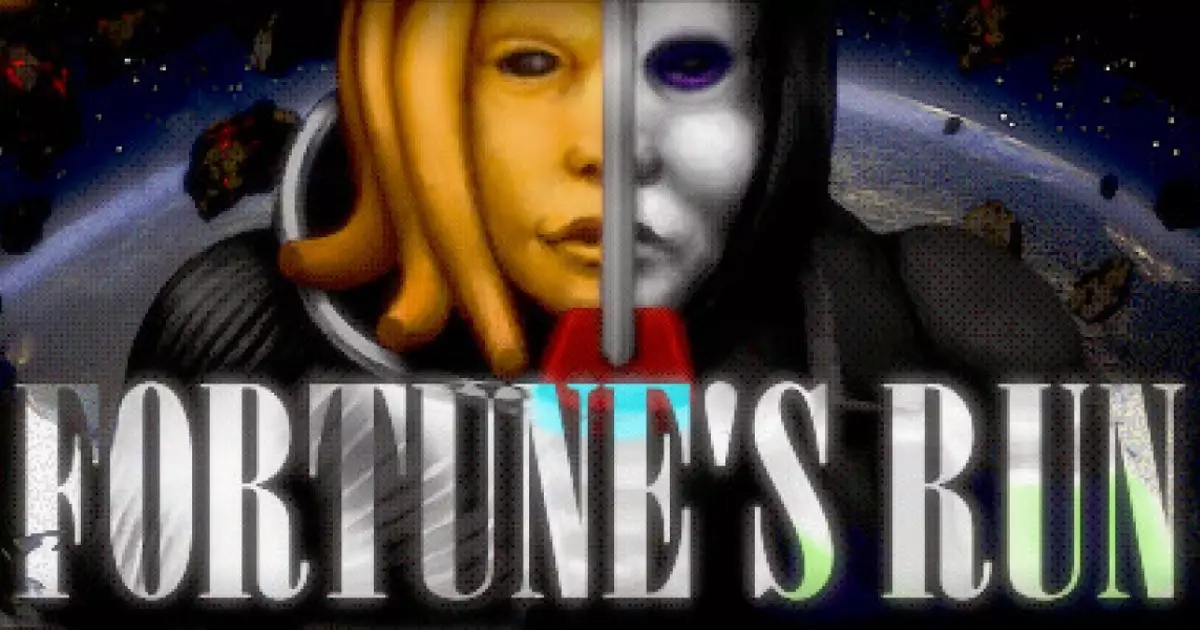The gaming industry is often viewed as a realm of innovation, creativity, and collaboration. However, it can also unearth personal stories of struggle and consequence, highlighting the very real human experiences behind the characters and narratives we encounter in our favorite titles. The recent announcement surrounding the immersive sim-shooter Fortune’s Run, developed by Team Fortune, encapsulates this dichotomy starkly. As the lead developer, Dizzie, embarks on a journey toward incarceration following serious legal repercussions, the future of the project hangs in a precarious balance. The motivations, circumstances, and human elements surrounding such events beg for deeper exploration.
Dizzie’s announcement, laden with a sense of remorse and reflection, reveals the complexities of their life prior to their foray into game development. In a candid Steam post, he revealed that his conviction stems from a violent crime, a narrative that has unfolded over five grueling years. With the focus shifting from the game to Dizzie’s personal history, we begin to understand more about the individual behind the development of Fortune’s Run. The confession of having lived a “very different life” characterizes a pivotal shift, challenging the assumptions of who the faces behind our favorite pastimes really are. The admission that he was “a very violent person” complicates the narrative of the developer stereotype, urging gamers to reconcile their admiration for artistry with the stark realities of individual choices and their resulting consequences.
A parallel story unfolds with the exit of developer Arachne, whose own journey has been marred by challenges following a mishandled surgical procedure. The intersection of both developers’ circumstances reveals the fragility and unpredictability of the gaming development process. While Dizzie insisted that Arachne’s exit was unrelated to his crime, one cannot help but speculate on the impact of his legal battles on her decision to leave the industry altogether. Facing physical health challenges and the stress associated with being tethered to a developer embroiled in legal turmoil may have contributed to Arachne’s retreat from this creative space.
The notion that personal-life struggles can easily spill over into professional realms is accentuated here, painting a picture of a development team that was not only building a game but also wrestling with their own human experiences. This atmospheric weight made significant contributions toward the making—or almost unmaking—of Fortune’s Run.
With Dizzie now facing incarceration, the fate of Fortune’s Run remains uncertain. He expressed a hope that the project might eventually return to life, fueled by the successful sales the game has already gathered. This optimistic ray shines through, emphasizing a persistent passion for creation, even amid overwhelming personal adversity. Dizzie’s determination to finish what he started before facing the consequences of his past reveals a nuanced dedication to his craft that transcends the simple desire to entertain. His assertion that “development will be completely interrupted until I’m released” represents not merely a pause in production, but a moment for the gaming community to realize the magnitude of the human experience in the industry.
Moreover, the potential for future development following Dizzie’s release lingers on the horizon, though the complexities of reintegrating into a world that evolves rapidly while one is incarcerated can prove daunting. Yet, his enthusiasm for resuming work on Fortune’s Run underscores a central truth in gaming: the creative spirit does not easily die.
The unfolding saga of Fortune’s Run compels us to consider the broader implications of personal strife on collaborative creations in gaming. It invites a reconceptualization of the relationship between developers and gamers, urging the audience to understand that behind every pixel, every line of code, lies a person with a rich tapestry of life experiences, both uplifting and challenging. As communities reflect on these narratives, they foster a space that is more compassionate, understanding, and aware of the human stakes intertwined with enjoyable entertainment.
In the midst of tragic events, the resilience shown by Dizzie may inspire others to reflect, reconsider, and ultimately engage more holistically with the developers behind their screens. It’s a compelling reminder that the path of creation is fraught with complications, and our appreciation for it must extend far beyond the confines of the game itself.


Leave a Reply